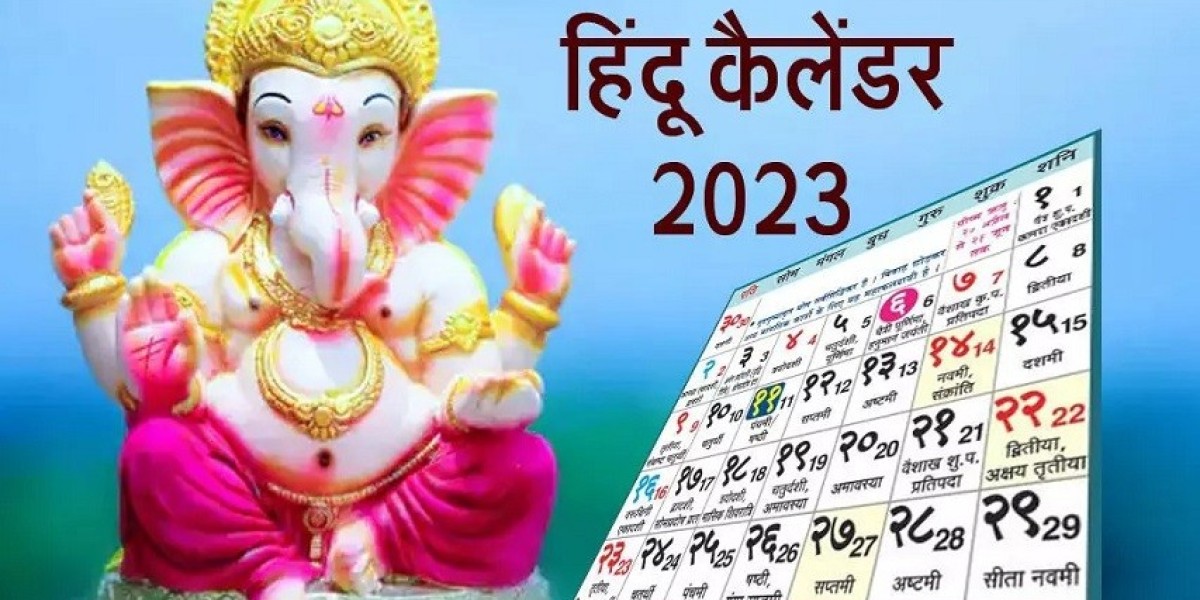The Hindu calendar, also known as the Hindu Panchanga or Panchang, is a traditional timekeeping system that has been used in India for centuries. It is deeply rooted in Hindu culture and plays a significant role in determining auspicious timings for various events, religious festivals, and rituals. In this article, we will explore the intricacies of the Hindu calendar, its components, and its relevance in contemporary times.
1. Origins and Importance of the Hindu Calendar
The Hindu calendar has its origins in the ancient Vedic texts and is based on the lunar and solar cycles. It is believed to have been developed by sages and scholars to track celestial movements and align human activities with cosmic energies. The Hindu calendar is not only a means of timekeeping but also a spiritual and cultural guide, reflecting the rich tapestry of Hindu traditions and practices.
2. Structure and Components of the Hindu Calendar
The Hindu calendar is a complex system comprising several components that work together to create a holistic timekeeping framework. Here are the key elements:
2.1 Tithi (Lunar Day)
The Tithi represents the lunar day and is one of the fundamental elements of the Hindu calendar. It is calculated based on the position of the Moon in relation to the Sun. Each Tithi has its own significance and is associated with specific rituals and observances.
2.2 Var (Weekday)
Var refers to the weekdays in the Hindu calendar. Unlike the Western seven-day week, the Hindu calendar follows a different naming convention for each day of the week. Each day is associated with a different deity and is believed to have its own unique characteristics and energies.
2.3 Nakshatra (Lunar Mansion)
Nakshatra refers to the lunar mansions or constellations. The Hindu calendar recognizes 27 Nakshatras, each associated with a specific star or constellation. The Nakshatra in which the Moon is positioned at a given time has astrological significance and influences various aspects of human life.
2.4 Yoga (Lunar Day)
Yoga represents the angle between the Sun and the Moon. It is another important component of the Hindu calendar. There are 27 Yogas, each associated with specific characteristics and energies. The Yoga at a particular time is believed to influence the nature of activities performed during that period.
2.5 Karana (Half of a Lunar Day)
Karana is half of a Tithi or lunar day. It helps in determining the suitability of different activities at specific times. There are 11 Karanas, each with its own unique qualities and influences.
2.6 Rashi (Zodiac Sign)
Rashi refers to the 12 zodiac signs in the Hindu calendar. Each zodiac sign has specific attributes and is associated with different planets and elements. The position of the Moon in a particular zodiac sign at a given time is considered significant for astrological interpretations.
3. Significance and Applications
The Hindu calendar serves as a spiritual and cultural compass for millions of Hindus worldwide. It helps in determining auspicious timings for important events such as weddings, housewarming ceremonies, and religious festivals. By aligning activities with the cosmic energies indicated by the calendar, individuals seek blessings and ensure positive outcomes.
4. Adaptation in Modern Times
In today's digital age, the Hindu calendar has adapted to the changing times. Numerous websites, mobile applications, and printed almanacs provide easy access to the Panchang and its various components. These resources allow individuals to conveniently check important dates, Tithis, Nakshatras, and other aspects of the Hindu calendar.
Conclusion
The Hindu calendar, with its intricate components and deep spiritual significance, serves as a valuable guide for Hindus around the world. It not only helps in tracking time but also connects individuals with ancient traditions and cultural practices. By understanding the Hindu calendar and its components, one can embrace the wisdom of the ages and enrich their lives.



